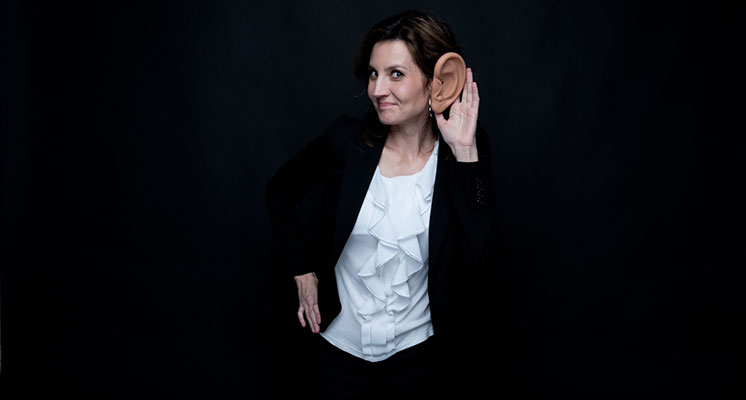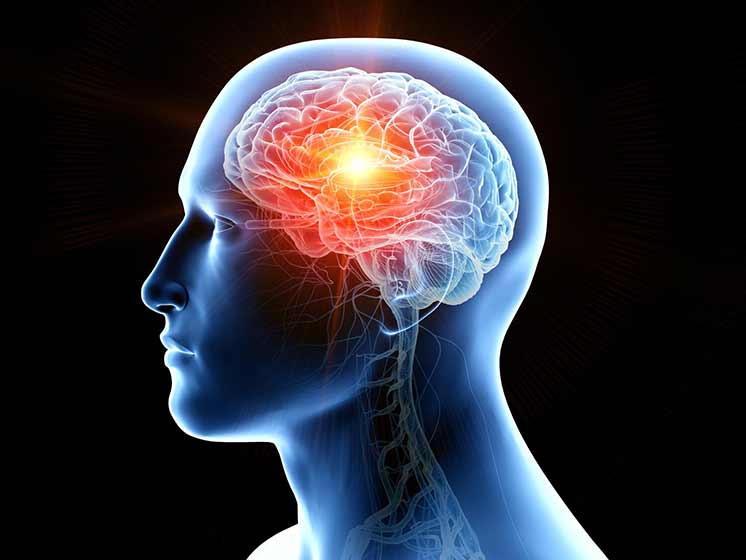Come and enjoy the welcoming atmosphere of the Comox Seniors’ Centre at 1801 Beaufort Ave in Comox. Enjoy a coffee and meal at Dei’s Cafe with friends or meet new acquaintances. Check out the library for a good book, DVD or puzzle. Check out our Gift Shop. Become a member and participate in the many activities available.
Sore Gums?
If your gums hurt when you brush your teeth, it could be a sign of gum inflammation, commonly known as gingivitis. This condition is often caused by inadequate oral hygiene, allowing plaque to build up and irritate the gums. To address this issue, make sure to brush your teeth gently using a soft-bristle toothbrush. Contrary to popular belief, hard bristles don’t help you clean better, but will irritate your gums more. Ask our hygienists and they will all confirm, soft bristle is the way to go! Floss daily to remove food particles and plaque between teeth. Consider using an antiseptic mouthwash to reduce bacteria. If the pain persists or worsens, consult Uptown Dental promptly, as untreated gingivitis can progress to more severe gum disease. Regular dental check-ups are essential for maintaining oral health.
Healthcare Solutions for Seniors
Home healthcare solutions are essential for senior well-being. These solutions, including medical alert systems, medication management tools, and mobility aids, empower seniors to maintain their independence, reduce healthcare costs, and prevent unnecessary hospital stays. Medical alert systems like Lifeline provide immediate assistance during emergencies, while automated medication dispensers ensure proper medication intake. Home modifications enhance safety, and mobility aids improve seniors’ quality of life. Comox Valley Lifeline Society offer comprehensive solutions, including two-way communication with trained professionals. Consider a medical alert service for ongoing safety assurance.
Signs Your Aging Parents Need Help
Recognizing signs that aging parents require assistance is crucial for their well-being. Keep an eye out for changes in mobility, like difficulty walking or frequent falls. Notice shifts in memory, such as forgetfulness and confusion. Changes in personal hygiene and household upkeep can indicate declining capabilities. Look for unexplained weight loss, which might signal health issues. Social withdrawal or mood changes may hint at emotional struggles. Mismanagement of medications and unpaid bills could suggest cognitive decline. If you observe these signs, it’s time to discuss and arrange appropriate support, ensuring their safety, health, and quality of life as they navigate the challenges of aging.
Pre-Plan for Peace of Mind
Pre-planning for your final wishes is a compassionate choice that relieves your family of the burdensome task during a time of grief. It provides financial security, shielding against rising costs and disputes. Furthermore, it offers emotional support, allowing loved ones to come together, grieve, and bond. Planning your farewell in advance ensures that your specific wishes and budget are met. It becomes a cherished gift to your loved ones, enabling you to share your life’s story one last time. Remember, if you want to live well and die well, you need to plan your funeral well!
Make Life Accessible
Our knowledgeable experts enjoy making life accessible for everyone by identifying the unique needs of our clients and selecting solutions that fit their lifestyles. Let us help you make a difference in your life every day with the right mobility and home accessibility solutions, including *wheelchairs, *stairlifts, *walkers, *power lift recliners, *bathroom safety items and more. We’re also here to help with rental equipment, repairs and maintenance and to assist with navigating funding opportunities. Let us help you make a difference in your life every day with the right mobility and home accessibility solutions. “Because Motion isn’t a place, it’s a partnership.”
Cumberland 50+ Drop In
The Cumberland Drop-In Social Club, in Buchanan Hall, is a volunteer-led initiative that welcomes mature adults (50+) of all abilities to play games, pursue favourite leisure pastimes and enjoy the company of friends and neighbours. Tuesdays and Fridays from 10am to 12pm. $3 drop-in fee, or free with a Cumberland Recreation membership
Volunteers Always Needed!
The strength of CVSS comes from our amazing volunteers. If you would like to visit with a lonely or isolated senior, or assist someone with accessing services in the community, or if you have another strength to offer, please contact us to learn more about providing support in your community. Beginning in September, volunteer training sessions will be done monthly so there will be only minimal waiting before you can begin! Volunteers are provided with monthly support meetings and regular education sessions.
Comox Valley Elder College
It’s Fall and that’s the start of Elder College in the Comox Valley. The mission of Elder College is enhancing the quality of life in older adults in our community by offering affordable opportunities for continued learning. Check out the Fall program schedule that includes on-campus, online (digital) and off-site courses. https://www.nic.bc.ca/continuing-education/eldercollege/comox-valley/
Canadian Longitudinal Study on Aging (CLSA)
The CLSA is a large, national, long-term study of more than 50,000 individuals who were between the ages of 45 and 85 when recruited. These participants will be followed until 2033 or death. The aim of this study is to find ways to help us live long and live well and understand differences in ageing. The data from this research will contribute to identifying ways to prevent disease and improve health services, develop a better understanding of non-medical factors as people age, as well as answer important questions that are relevant to decision-makers. For more information: https://www.clsa-elcv.ca/about-us
10 Interesting Ear Facts
Ears allow us to hear, but what else makes them so special?
Let’s find out!
1. Without your ears, you would lose your balance
Inside your inner ear lies a fascinating maze-like structure known as the vestibular system. Located here are three canals with fluid and small hair cells that detect the rotational movement of your head, whether that be up and down, side to side, or tilting. Each semi-circle canal is located at a different angle so your brain can better judge where your head is moving. They are each responsible for a specific direction of head movement.
Information coming from the vestibular system is processed in the brain and then sent to other organs that need this information, such as the eyes and muscles. This allows us to remain balanced and know what position our body is in. In some situations, (i.e., on a boat,) different sensory organs, such as the eyes, send contradictory messages to the brain. This is what can then cause us to feel unwell, dizzy, or nauseous.1
2. Your ears keep “growing” with age

Legend has it that our ears and nose are the only parts of our body that continue growing throughout our lives. They do indeed get larger, but it’s not because they’re literally growing. It’s most likely a combination of natural aging and gravity doing the work.2
As we age, our ears appear to be getting bigger but it’s because the cartilage in our ears is slowly breaking down, and gravity makes them elongate overtime.
3. Ears are self-cleaning
Earwax gets a bad rap.
But the truth is, it’s a completely natural (and essential) part of our ears.
Normal earwax production is a sign that your ears are doing a great job at cleaning themselves. This self-cleaning ability is also a win-win because the wax helps keep the ears moisturized and protected.
4. Ears never sleep

Our ears are still hearing 100% of the sounds around us when we are asleep, even if we’re not aware of it. It’s our brain that’s responsible for processing all the sounds around us and making sense of them.
The sleeping brain continues generating neural responses to surrounding events, but the sleeper is merely in “standby” mode as the brain continues to monitor for relevant signals.3
5. Your ears have very important hairs (that don’t grow back)
The ear has tiny nerve fibers or hair cells that help us maintain balance, but they’re also there to help us hear. These delicate hair cells are very sensitive and can be easily damaged to the point where they break. Once they break, they don’t grow back.
Some of the main reasons for this type of hair cell loss include sound exposure, natural aging, and ear infections. To avoid your risk for hearing loss, it’s important to take care of your ears by avoiding loud noises when possible or protecting your ears with ear plugs or coverings when exposed.4
6. Sound exposure is the leading cause of hearing loss
There are many things that can cause hearing loss, but sound exposure is the number one culprit.
This type of hearing loss falls under the category of Sensorineural Hearing Loss, and though there can be other causes such as aging, ear infections, and certain medications, it’s often caused by exposure to high levels of noise. It can be the result of one loud impulse sound, or from continual exposure to loud sounds over time. It depends on the level of the noise, or pitch, to determine how long it’s safe to be exposed to it.
It can happen to anyone, at any age.
7. Your ears help regulate pressure changes
Ever wonder what makes your ears “pop” on an airplane?
The middle of our ears has a certain amount of pressure around it, and the Eustachian tube in our ears helps keep air pressure equal on both sides of the eardrum to ensure that the pressure does not build up when the surrounding air pressure changes (like on an airplane or somewhere else of a high altitude).5
The Eustachian tubes then opens to relieve some of the pressure when we swallow, which equalizes the pressure inside and outside our ear. That’s what makes them “pop.”
8. The ears are connected to the nose and throat
The ears, nose, and throat are all intricately connected, that’s why there’s a type of doctor who looks at these parts of the body as one unit.
A disturbance in one part can cause a disturbance in the others. So, if there’s an infection in the throat, for example, it can travel to the ear. This is because the Eustachian tube is the pathway that runs through each part and connects them all together.
9. Hearing loss may cause cognitive decline

A new report published by the Lancet Commission shows that hearing loss is a risk factor for dementia.6 In fact, moderate hearing impairment can increase one’s dementia risk by 3x.
Even mild levels of hearing loss can increase the long-term risk of cognitive decline and dementia in people who are cognitively intact but somewhat hearing impaired. This is likely because hearing loss leads to lowered mental stimulation, isolation, and depression – all of which contribute to accelerated cognitive decline.
10. We have two ears for a reason
Having two ears helps us figure out which direction sounds are coming from.7 If you have hearing loss in one ear, you can probably notice that it’s hard to decipher where a particular sound is located. Therefore, it’s important to use two hearing aids instead of one when hearing loss is present in both ears, to help locate warning sounds around you, navigate safely through traffic, and walk safely across the road.
Would you like to learn more about your unique ears and hearing? Book a free hearing appointment with one of our hearing care professionals!
Sources
“How Does Our Sense of Balance Work?” NCBI, IQWiG (Institute for Quality and Efficiency in Health Care), 7 Sept. 2017, www.ncbi.nlm.nih.gov/books/NBK279394.“What to Know About Nose and Ear Growth as You Age.” WebMD, 19 Mar. 2021, www.webmd.com/healthy-aging/what-to-know-about-nose-and-ear-growth-as-you-age#1.
Legendre, Guillaume. “Sleepers Track Informative Speech in a…” Nature Human Behaviour, 14 Jan. 2019, www.nature.com/articles/s41562-018-0502-5
“Noise-Induced Hearing Loss.” NIDCD, 31 May 2019, www.nidcd.nih.gov/health/noise-induced-hearing-loss.
Gaihede, Michael. “Middle Ear Pressure Regulation–Complementary Active Actions of the Mastoid and the Eustachian Tube.” PubMed, June 2010, pubmed.ncbi.nlm.nih.gov/20393372.
Orgeta, V., Mukadam, N., Sommerlad, A., & Livingston, G. (2019). The Lancet Commission on Dementia Prevention, Intervention, and Care: A call for action. Irish Journal of Psychological Medicine,36(2), 85-88. doi:10.1017/ipm.2018.4
Hebrank, Jack, and D. Wright. “Are Two Ears Necessary for Localization of Sound Sources on the Median Plane?” The Journal of the Acoustical Society of America, Acoustical Society of America, 1974, asa.scitation.org/doi/abs/10.1121/1.1903351.







